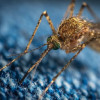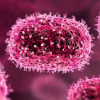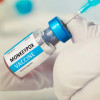 Mrs. Mayuri Mathur
Mrs. Mayuri Mathur
Protecting Your Family and Community from Mpox: Hygiene and Safety Measures
Mpox, previously known as monkeypox, is a viral disease that has gained attention in recent years due to its potential to spread among humans. Understanding how to protect yourself, your family and your community is crucial in mitigating the impact of this disease.
What is Mpox?
Mpox is caused by the monkeypox virus, similar to the virus that causes smallpox. It primarily occurs in Central and West Africa, where it is endemic, but cases have been reported globally. The disease can present with symptoms such as fever, rash, and swollen lymph nodes and can lead to severe complications in some individuals, particularly children and immunocompromised persons.1-2
Transmission of Mpox
Mpox can spread in several ways:
Human-to-Human Transmission: This occurs through direct contact with an infected person's bodily fluids, lesions, or respiratory droplets.
Animal-to-Human Transmission: The virus can also be transmitted from infected animals, such as rodents or primates, through bites or direct contact with bodily fluids.
Contaminated Materials: Contact with contaminated materials, such as bedding or clothing, can also facilitate the spread.1-2
Mpox Symptoms
Symptoms typically appear 7 to 14 days after exposure and can include:
Fever
Headache
Muscle aches
Swollen lymph nodes
Rash (often starting on the face and spreading to other body parts).
It's important to seek medical attention if you or a family member experiences these symptoms, especially after potential exposure.1-2
Protecting Your Family and Community
Preventive measures should be implemented to stop the spread of this virus, which may include the following:
1. Education and Awareness
Understanding the disease is the first step in prevention. Families should educate themselves about Mpox, its symptoms, and how it spreads. Community outreach programs can help disseminate this information more widely, ensuring everyone is informed.
2. Avoid Contact with Infected Individuals and Maintain Good Hygiene
If a member of your family or community is diagnosed with Mpox, it is crucial to limit contact, including sexual contact. Infected individuals should isolate themselves until they are no longer contagious, as recommended by health authorities. This does not usually occur until all the lesions have crusted over, the scabs have fallen off, and a new layer of skin has formed underneath.
If you are isolated alone at home
Infected individual should clean and disinfect their living spaces to reduce the risk of spread to others
When cleaning and disinfecting things, put on gloves if you have a rash on your hands
After use, dispose of the gloves and wash your hands with soap and water.
If you are isolated from others at home
Request assistance from friends and family in the form of required deliveries
Remove yourself to a different room, use a different restroom, or wipe out everything you touch after each usage.
Sanitize and clean surfaces that are often touched using a household disinfectant, soap and water
Refrain from sweeping/vacuuming as this could scatter virus particles and infect others.
Keeping cutlery, electronics, and other items apart, or thoroughly clean them with soap and water or a disinfectant before sharing
Do not exchange clothing, beds, or towels.
Do your own laundry; lift bedding, clothes, and towels carefully without shaking them, place them in a plastic bag before bringing it to the washing machine, and wash them with hot water over 600C
Keep your windows open for good ventilation.
Urge everyone in the house to clean their hands regularly with soap and water or an alcohol-based hand sanitizer.
3. Wastewater and garbage management
Wastewater and trash are the perfect habitats for the virus to survive, propagate, and replicate; hence, it requires immediate attention.
An isolated person infected with Mpox should use a designated line garbage can.
Gather any dirty waste such as bandages, paper towels, food packaging, and other everyday garbage items and place them in a sealed bag.
Any gloves, bandages, or other waste and disposable items that have come in direct contact with the skin should be placed in a sealed plastic bag and should be disposed of in a designated trash can.
The individual with Mpox or other household members should wear gloves when taking out rubbish bags and disposing of trash.
4. Vaccination
There are vaccines available that can protect against Mpox. Consult with healthcare providers to determine if vaccination is appropriate for you or your family, especially if there is a known exposure.
5. Monitoring Animal Interactions
If you live in or travel to areas where Mpox is endemic, avoid contact with wild animals. Be cautious about consuming meat and thoroughly cook it before eating it.
6. Limit your sexual activity
Establish a practice of sharing contact details with each new partner so that you may follow up on your sexual health if necessary.
Discuss any Mpox symptoms with your partner, and keep an eye out for any new or mysterious rash or lesion on either of your bodies, such as the mouth, genitalia, or anus.
Reduce your number of sexual partners to lessen the risk of spread.
Using latex or polyurethane condoms can shield your mouth, vagina, penis, and anus from Mpox exposure. 1-3
Conclusion
Protecting your family and community from Mpox requires a multi-faceted approach involving education, hygiene, vaccination, and community engagement. By being informed and proactive, we can collectively reduce the risk of transmission and safeguard our health.
References
Centers for Disease Control and Prevention (CDC). Monkeypox. [Internet]. [cited2024 Sept 06] Available at: https://www.cdc.gov/poxvirus/mpox/about/index.html
World Health Organization (WHO). Monkeypox. [Internet]. 26 Aug 2024. [cited 2024Sept 06]. Available at: https://www.who.int/news-room/fact-sheets/detail/mpox
Mansoor A, Mansoor E, Waheed Y, Palma PJ, Chaves C. Update on the M-pox virus and safety measures taken against it globally. J Formos Med Assoc. 2023 Nov 22:S0929-6646(23)00437-0. doi: 10.1016/j.jfma.2023.10.019. Epub ahead of print. PMID: 37996327.

Mrs. Mayuri Mathur
Mrs. Mayuri Mathur is a Senior Medical Writer (Patient education and digital) and seasoned content creator with a rich tapestry of expertise spanning over ten years. With a diverse background in content creation, she brings a wealth of experience to the table, from crafting insightful medical articles to developing comprehensive patient education materials, dynamic press releases, and captivating brochures and website content. Throughout her illustrious career, she has demonstrated an exceptional knack for distilling complex medical concepts into easily understandable content, making her a trusted resource for both professionals and lay audiences alike. Her meticulous attention to detail and innate creativity have enabled her to deliver content that not only informs but also engages and inspires. Whether elucidating intricate medical procedures or crafting compelling marketing materials, her versatility and dedication shine through in every project she undertakes. Her passion for writing, coupled with her profound understanding, makes her an invaluable asset to any team or project. In a constantly evolving digital landscape, where effective communication is paramount, Mrs. Mayuri Mathur stands out as a beacon of excellence, consistently delivering top-notch content that resonates with audiences across diverse platforms.









Please login to comment on this article